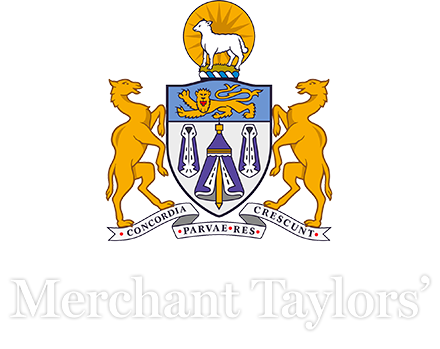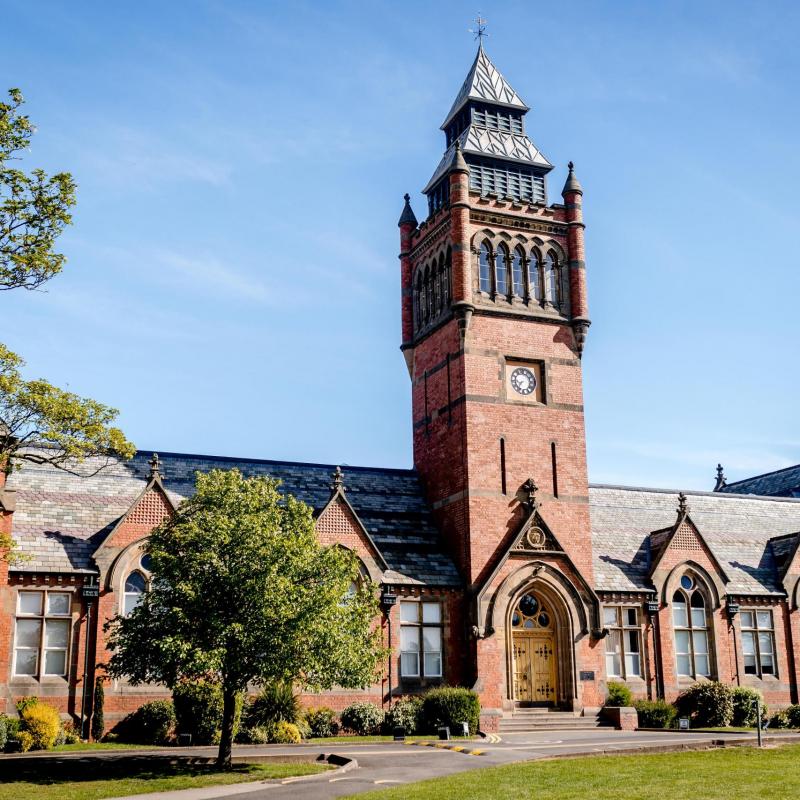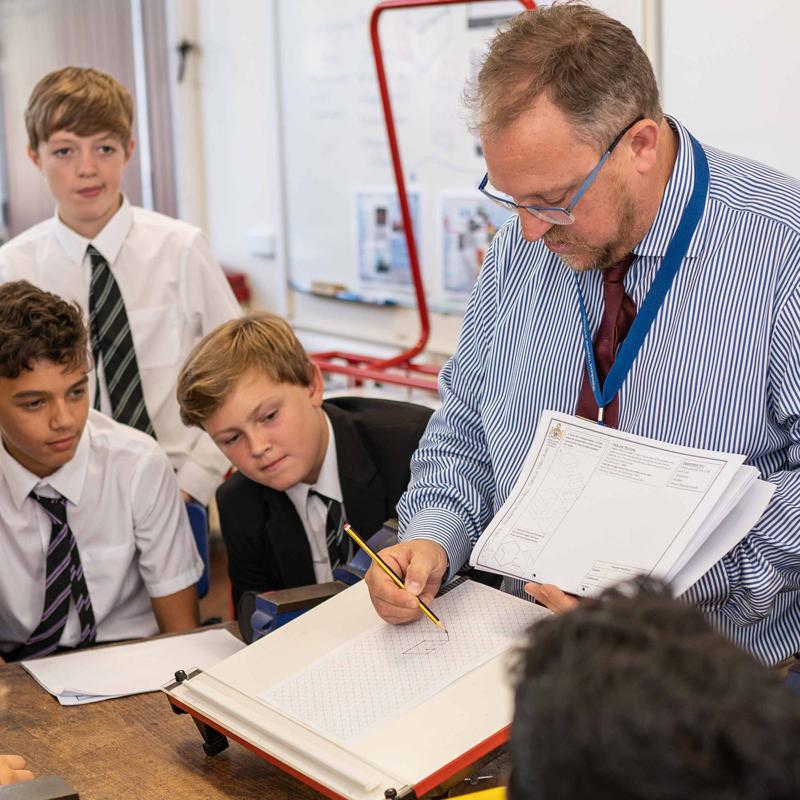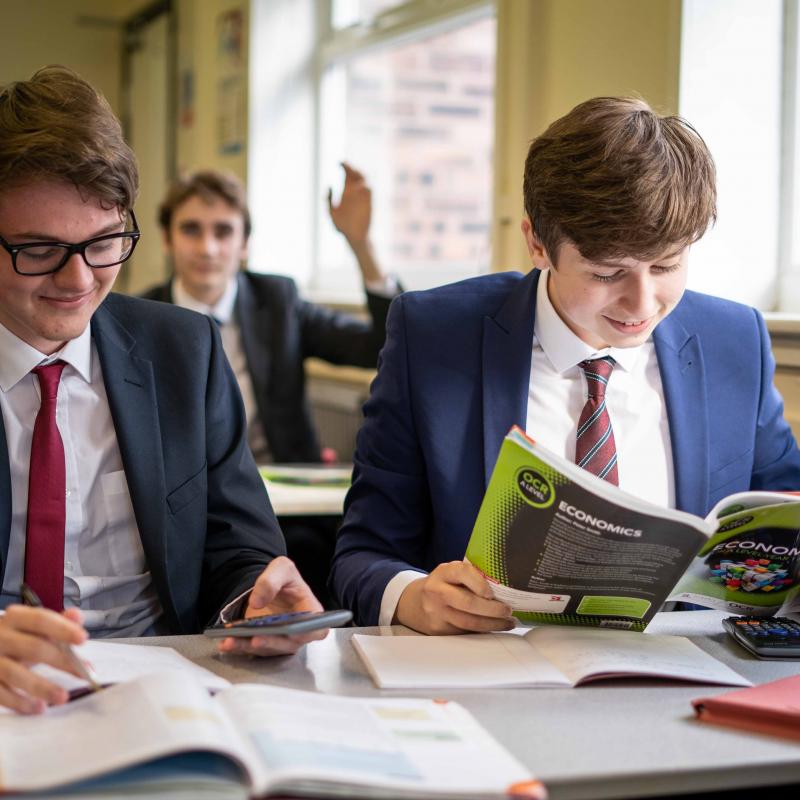Drama
The vision of the Drama department at Merchant Taylors’ is to create opportunities for pupils to explore a range of aspects of theatre while helping them to build their confidence, self-esteem and communication skills.
The subject focuses primarily on group work and collaboration and pupils can opt to explore performance, design or technical aspects of the subject throughout each unit, thereby encompassing the full breadth of this diverse subject.
We have excellent drama facilities, including a drama studio with theatre-style seating and extensive production facilities in the Williams Hall, which has a theatre-sized stage area and recently underwent a £250,000 refurbishment to upgrade its sound and lighting technology and create an enhanced viewing environment for pupils and audience members.
Lower School
In Year 7, pupils study the history of theatre, exploring a variety of topics including Greek Theatre, Commedia, Pantomime and Melodrama, while learning the relevant skills associated with both the performing and technical side of the subject.
As they progress to Year 8, pupils can try their hand at script-writing, producing their own material for performance, further developing their skills and experimenting with the use of mime, mask, props and costume.
In Year 9, pupils study the techniques of different drama and theatre practitioners including Stanislavski, Brecht, Boal, Brook, Frantic Assembly and Kneehigh Theatre company.
The Lower School production is open to all pupils from Years 7 to 9, providing them with the opportunity to become their own theatre company with many taking on roles on-stage and off-stage.
Enrichment opportunities are key to this subject and we organise various theatre trips and visiting workshops with industry professionals to enhance the study of Drama.
GCSE
The GCSE Drama course is made up of three components.
1. Understanding drama (40% of the GCSE)
This component assesses knowledge and understanding of drama and theatre, with the study of one set play from a choice of six. It also involves analysis and evaluation of the work of live theatre-makers. Assessment is by a written exam lasting 1 hour and 45 minutes.
2. Devising drama – practical (40% of the GCSE)
This section focuses on the process of creating and performing devised drama. Pupils are able to contribute as a performer or a designer, with analysis and evaluation of their own work. It is assessed via a devising log (60 marks) and devised performance (20 marks).
3. Texts in practice – practical (20% of the GCSE)
Pupils perform two extracts from one play – they may contribute as performer or designer. There is a free choice of play but it must contrast with the set play chosen for Component 1. The performance of each extract is then assessed.
This course suits anyone with an interest in theatre. Students are taken to professional productions in Liverpool, Manchester and elsewhere and receive insight from professional actors who visit the department and run workshops. The GCSE forms a bridge to the A-Level course and also to Drama School for those interested in pursuing Drama as a career.
A Level
Drama remains a rewarding, rigorous A-Level and was recently regarded as the qualification of choice by a number of key business leaders in a poll, reflecting the importance we place on effective communication and analytical methodology.
The new course specification asks candidates to explore the work of important dramatists and practitioners and the ability to work from a director’s perspective or from a technical angle complements the more conventional actor’s role.
Assessments are both practical and examined, with the former accounting for 60% of the total award. There is no obligation for pupils to have studied Drama at GCSE to be successful at A-Level but they will need to possess an evaluative approach and a methodical attitude to performance and note-taking.
A-Level pupils invariably take part in whole school productions and many have wider theatrical interests beyond school.




